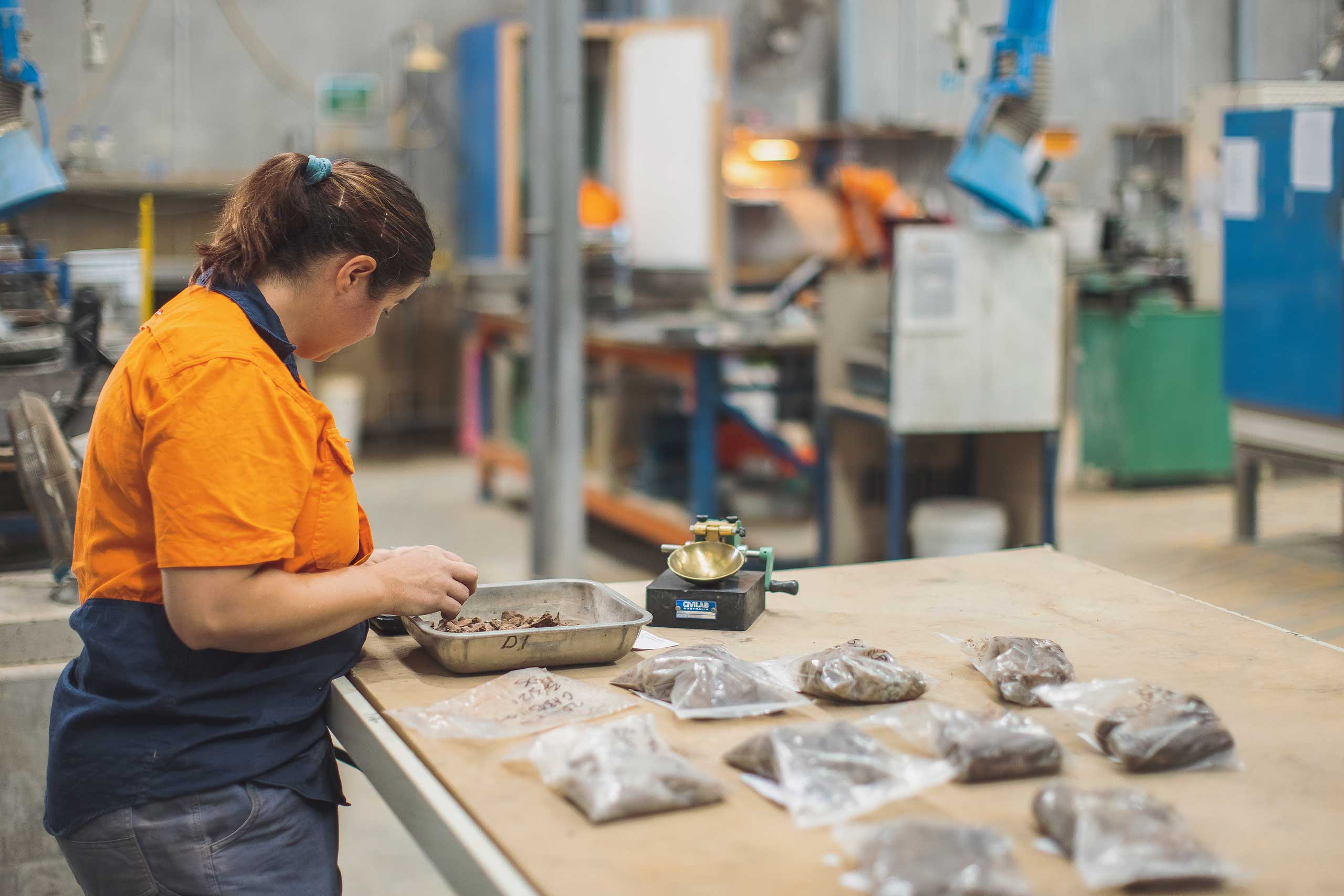Comprehensive soil testing and classification services for civil, construction, and residential projects.
Soil Testing & Classification Services
Hunter Geotechnical Services provides expert soil testing and classification services, including sampling, strength tests, chemical analysis, and contamination assessments.
Hunter Geotechnical Services provides comprehensive soil testing and classification services for civil, construction, and residential projects. With our NATA Accredited laboratory, we offer a range of soil tests to assess the physical and chemical properties of soil, ensuring that it meets the necessary specifications for use in construction, earthworks, and landscaping. Our soil testing services form a critical component of site investigations, materials quality assurance, and compliance testing.
Our team of experts is dedicated to delivering accurate and reliable soil testing and classification to support project success. Whether for construction or civil infrastructure, we conduct detailed analyses using both field sampling and advanced laboratory testing. We aim to provide clients with the necessary data for site planning, material selection, and engineering decision-making.
Key Soil Testing Services
Onsite Sampling
We conduct both disturbed and undisturbed soil sampling to gather representative soil samples from the project site. These samples are then tested in our NATA-approved lab to assess key properties, ensuring the material is suitable for its intended use. Our disturbed sampling methods are typically used for bulk materials, while undisturbed sampling provides insight into soil conditions for foundations and stability assessments.
Soil Classification & Atterberg Limits
We classify soils based on their physical properties, including moisture content, plasticity, and shrinkage potential. Atterberg Limits testing, which incorporates plastic and liquid limits as well as linear shrinkage, helps determine soil consistency and its ability to function under varying moisture conditions. We also perform Emerson Class tests and particle size distribution analysis to further classify soil types.
Chemical Testing
Our lab performs a variety of chemical tests on soil samples, such as pH testing, to assess acidity or alkalinity. This is particularly important in identifying potential issues with soil reactivity, contamination, and suitability for specific construction materials.
Strength & Bearing Capacity Testing
Strength and bearing capacity tests are vital for assessing soil suitability in construction. We perform compaction and density tests, Californian Bearing Ratio (CBR) testing, and unconfined compressive strength tests to determine the load-bearing capacity of the soil. These tests ensure that the foundation or pavement layers will remain stable under expected loads.
Soil Stabilisation & Material Blending Trials
We conduct soil stabilisation trials to assess how soil can be improved through material blending. This includes mixing stabilising agents such as lime or cement to enhance the strength, durability, and moisture resistance of the soil. Our testing helps determine the most effective soil stabilisation strategies for roadworks, building foundations, and other civil infrastructure projects.
Reactivity Testing (Shrink Swell Index)
Soil reactivity is a key consideration in areas where expansive soils may cause problems for foundations and pavements. We perform reactivity tests, including the Shrink Swell Index, to measure the soil’s tendency to expand and contract with changes in moisture content. This data is critical for designing foundations and pavements that can withstand soil movement.
Contamination & Foreign Material Testing
We test soils for contamination, including the presence of foreign materials, heavy metals, or organic contaminants. This is essential for ensuring that the soil is safe for use in construction and complies with environmental regulations.
Frequently Asked Questions
1. Why is soil testing important for construction projects?
Soil testing provides crucial data about the composition and properties of the soil. This information helps engineers and builders design foundations, pavements, and other structures that are safe, stable, and durable.
2. What is the difference between disturbed and undisturbed soil sampling?
Disturbed sampling involves collecting soil for bulk material testing, while undisturbed sampling preserves the natural structure of the soil, providing more accurate information for foundation design and stability assessments.
3. How does soil reactivity testing help with foundation design?
Reactivity testing measures the soil’s potential to expand or contract with changes in moisture. This helps engineers design foundations that can accommodate soil movement, reducing the risk of structural damage.
Why Choose Hunter Geotechnical Services?
- NATA Accredited: Our laboratory meets the highest industry standards for soil testing and classification.
- Comprehensive Testing: We offer a wide range of soil tests, including both physical and chemical assessments.
- Expert Team: Our experienced engineers and technicians provide reliable and accurate results for civil, construction, and residential projects.
- End-to-End Support: We offer full project support, from onsite sampling and laboratory testing to engineering reporting and compliance verification.
Hunter Geotechnical Services is a NATA Accredited Organisation.
See our Scope of Accreditation here.

Contact Us Today About Our Soil Testing & Classification Services
Hunter Geotechnical Services provides expert soil testing and classification services throughout Newcastle, Lake Macquarie, the Hunter Valley, Mid-North Coast, and NSW. Contact us today to discuss your soil testing needs. Call us or fill out this form, and we’ll be in touch shortly.
Partner with us on your next project
Contact our specialised team for more information about our services.